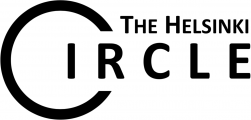Ilkka Pättiniemi One can take (at least) two attitudes when it comes to the meaning of words (or concepts, phrases etc.). One can be a prescriptivist, that is one can hold to the idea that words have a real meaning that is determined by some, possibly metaphysical, facts about the world outside of their use.Continue reading “Prescription for Descriptionists”
Author Archives: Ilkka Pättiniemi
Consequences of Fallibilism
Ilkka Pättiniemi In my last blog post, I took up the idea that fallibilism should be taken seriously in the philosophy of mathematics. In doing so, I did not mean to imply that philosophers of mathematics (or mathematicians for that matter) deny that we are fallible creatures. Rather, my intent was to state, following Tymoczko,Continue reading “Consequences of Fallibilism”
Tymoczko on the Epistemology of Mathematics
Ilkka Pättiniemi Lately, as one does, I have been reading up on the philosophy, and especially epistemology of mathematics. In doing so, I chanced upon the great, late philosopher of mathematics, Thomas Tymoczko. In his paper “Computers, Proofs and Mathematicians: A Philosophical Investigation of the Four-Color Proof” (1980) Tymoczko gives five very sensible criteria forContinue reading “Tymoczko on the Epistemology of Mathematics”
Pratchett on Truth: Trust, Responsibility, and Truth
Ilkka Pättiniemi A bit of levity for this week, but with serious undertones. In the 25th book of Terry Pratchett’s Discworld series, The Truth, there is a discussion between the commander of Ankh-Morpork’s city watch, Vimes, and an intrepid journalist William de Worde on trust and responsibility: Vimes said, ‘I don’t trust you, Mr deContinue reading “Pratchett on Truth: Trust, Responsibility, and Truth”
Addendum on Vagueness, Bivalence, and Science
Ilkka Pättiniemi For this week’s installment I will tie up some loose ends from my post on vagueness, as there is always more to say. Thing the first: bivalence and realism.It seems clear that scientific realism requires bivalence, but does bivalence (or the demand for bivalence) imply (a demand for) realism? Simply put: no. TheContinue reading “Addendum on Vagueness, Bivalence, and Science”
Does Science Require Metaphysics? – The Case of Vagueness
Ilkka Pättiniemi Some time ago, Ilmari made a general case against the metaphysicians’ claim that science requires metaphysics. I agree with what was said there, but wish to make a more piecemeal case against such claims. To that end, I will look at vagueness, and see whether a metaphysical (or a merely philosophical) solution toContinue reading “Does Science Require Metaphysics? – The Case of Vagueness”
How to Abolish Minds: What Is It Like to Be a Zombie?
Ilkka Pättiniemi Last time around, Thomas Nagel (1974) came to the rescue for the dualist: we after all can know that there are other minds. Notice, however, that the dissolution of skepticism about other minds rests on the notion of similarity between subjects. This similarity has to be physical/behavioral or else risk begging the questionContinue reading “How to Abolish Minds: What Is It Like to Be a Zombie?”
How to Abolish Minds: Feeling Batty
Ilkka Pättiniemi When we last left off solipsism loomed in the horizon for the opponent of materialism. Here I will introduce an argument that might save the dualist/mentalist from such a horrid fate: Thomas Nagel’s famous How is it Like to Be a Bat? (1974). In his the paper Nagel argues thatContinue reading “How to Abolish Minds: Feeling Batty”
How to Abolish Minds: Implications of Zombies
Ilkka Pättiniemi For this week’s installment (woefully late) I am going to dive into the depths of the philosophy of mind. Namely I will be arguing against minds, at least as they have been conceived by many thinkers in the past. To that effect I will start with philosophical zombies. Zombies were introduced into theContinue reading “How to Abolish Minds: Implications of Zombies”
The Fear of Instability
Ilkka Pättiniemi While Ilmari is dealing with the errors of empiricism (an endeavour on which I hope to contribute), I will continue diagnosing the realist’s condition. There is of course the idea that if we are not in touch with the really real, then anything goes. That is, a straightforward fear or relativism. But thereContinue reading “The Fear of Instability”
